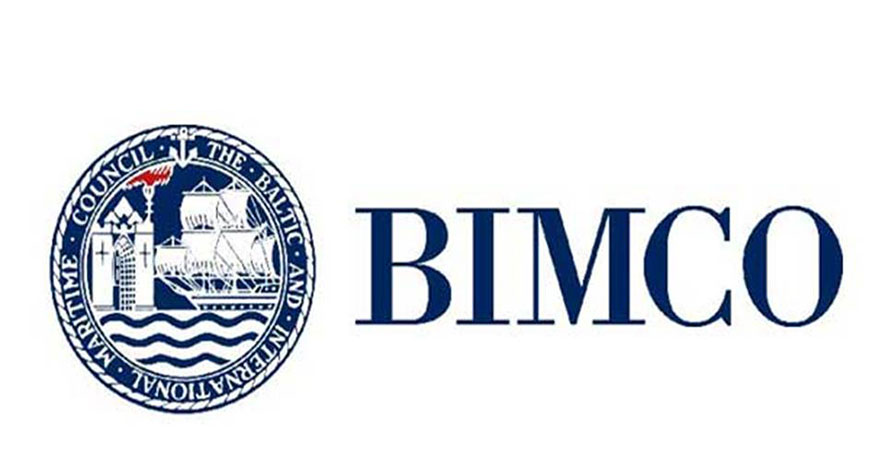A long-recognized need for an internationally accepted standardized contract, “RESPONSECON”, which will enable faster response to oil and chemical spills was adopted by the Baltic and International Maritime Council (BIMCO)’s Documentary Committee at its 5-6 June meeting in Rome.
The widespread concurrence with, and universal availability of, RESPONSECON represents a major advance in ensuring rapid and effective response to oil spills at sea and on land. The need for extended negotiations will be eliminated. Thus, the time required for mobilization of response resources to mitigate environmental damage will be very significantly reduced. RESPONSECON was formally launched during the recent International Oil Spill Conference in Long Beach, California, USA. Working Group Project Manager Tony Paulson presented the framework to an audience of over 100 delegates during a 16 May 2017 meeting and reception jointly hosted by the Spill Control Association of America (SCAA), the International Spill Control Organisation (ISCO), and the Association of Petroleum Industries Cooperative Managers (APICOM).
Background
The outcome of marine incidents has been demonstrably linked over many years to the prompt request and timely mobilization of specialist resources as needed to save lives, salvage vessels, or recover lost cargo. Global networks of government, coastguard, volunteer, lifeboat and rescue aircraft resources have achieved great success. However, protracted contracting processes often caused costly delays in mobilizing the spill response component. Arrangements under the international standardized form of salvage agreement Lloyds Open Form (LOF) have been available since the late 19th century to ensure rapid commencement of emergency operations and the successful salvage of countless vessels and cargos. In stark contrast to the universally accepted LOF, the spill response industry has relied on an ad-hoc patchwork of individual arrangements and heroic efforts of the parties involved to ensure the contract negotiations did not significantly postpone mobilization.
A spill response counterpart to LOF had long been under consideration by stakeholders, according to ISCO Executive Committee member John McMurtrie. But its execution and implementation lacked specific impetus. The September 2015 tabletop test of the International Maritime Organization (IMO)’s International Offers of Assistance guidelines again brought the issue in to focus. ISCO members, while willing to provide a wide variety of resources, clearly identified that they would be hindered in their delivery by the lengthy contracting process. Post-exercise, ISCO undertook a new initiative and approached BIMCO, the universally acknowledged experts in developing marine contracts for industry. After a series of discussions, the principals agreed to form a Working Group (WG) that would develop the RESPONSECON concept among ISCO’s membership and other interested parties. This WG critically included representation of the International Group of Protection & Indemnity (P&I) Clubs. These P&I Clubs provide liability cover for approximately 90% of the world's ocean-going tonnage and likewise had been considering the potential for standard clauses or contracts.
During six face-to-face meetings and intersessional correspondence over only two years, the joint ISCO-BIMCO WG developed RESPONSECON. Along the way, the WG was expanded to a wider consultation comprising participation and support of the International Salvage Union (ISU), International Tanker Owners Pollution Federation (ITOPF), the Spill Control Association of America (SCAA), and other interested parties.
RESPONSECON key elements
The new standard spill response agreements (available for both international and US jurisdictions) have wide application, including use for equipment and personnel or equipment- only scenarios. The contract defines general terms between response contractors and any requesting parties. Requesting parties are deliberately not confined to ship owners, but comprise government agencies, vessel owners, oil companies, pipeline operators, railway companies, port authorities, and others with responsibility for quickly initiating response operations.
The framework works well in practice as it is very flexible, and can be amended on a case-by-case basis, depending upon the requirements for quick initiation of response operations. RESPONSECON aims to provide fair balance and benefit to all concerned parties and speed response because it will avoid the delays caused by need to negotiate complex contractual negotiations before mobilization can begin. Response contractors will benefit from very positive cash flow implications which will ensure rapid reimbursement of mobilization outlays and ongoing costs of operations. In addition, requesting parties are protected against overpayment.
Next steps
Further to BIMCO Documentary Committee’s recent adoption, RESPONSECON has been published and is now available for download at BIMCO and ISCO RESPONSECON appears in the user-friendly familiar BIMCO style: front page with boxes to be completed followed by standard clauses. Annexes: A (scope of work), B (personnel rates), and C (equipment rates & particulars). These can be completed after the contract is signed.
Subsequently, RESPONSECON will be introduced at the next meeting of the United Nations International Maritime Organization (IMO)’s Marine Environment Protection Committee (MEPC) scheduled for London, UK, on 3-7 July. ISCO, BIMCO and other Working Group members with consultative status at IMO have submitted a paper that will inform governmental delegations of the agency’s 172 Member States.
Promulgation to MEPC, IMO's senior technical body on marine pollution related matters, will achieve world-wide recognition and acceptance of a collaborative initiative that will be of significant value in reducing pollution consequences of oil and chemical spills.
By: Helena Rowland





